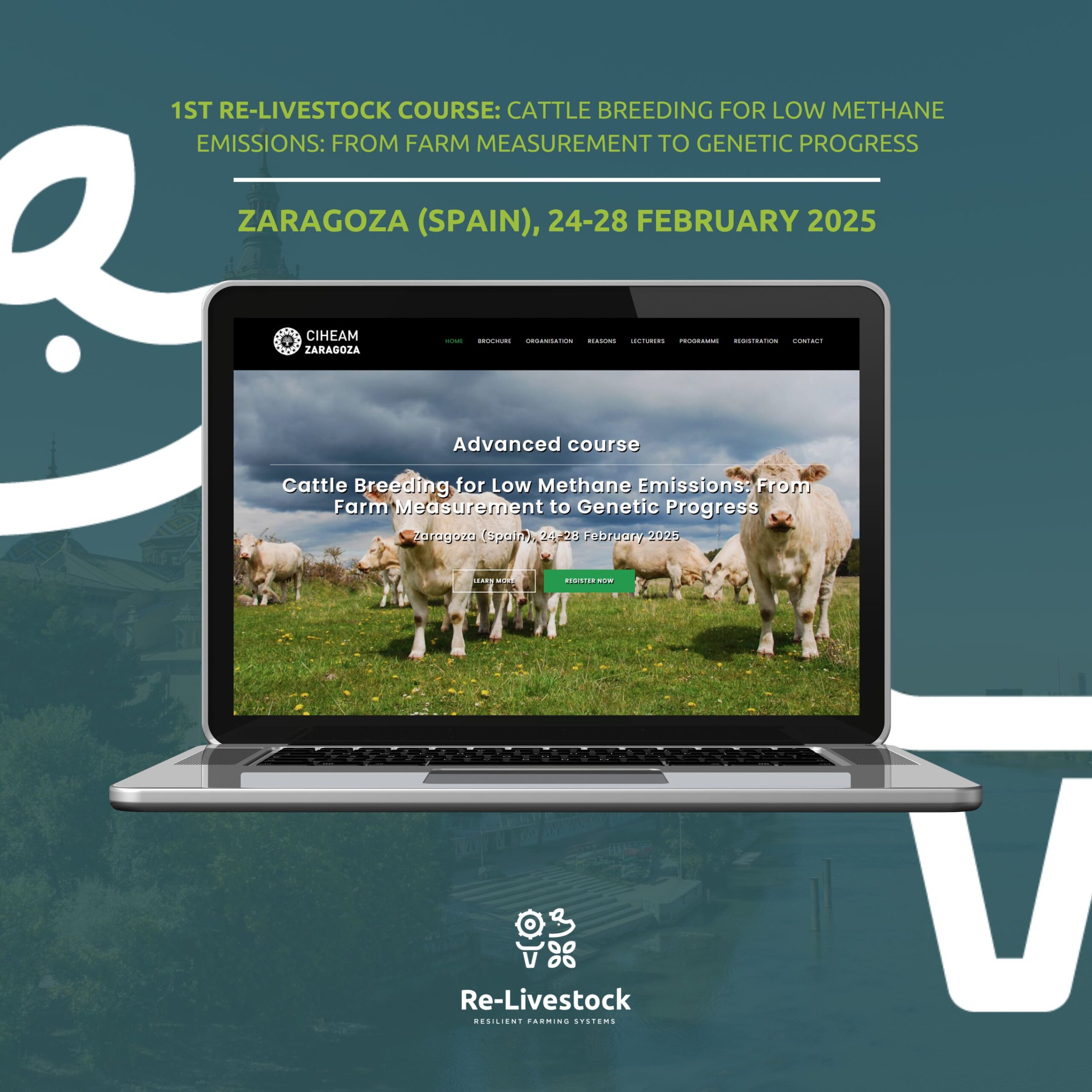The pioneering “Cattle Breeding for Low Methane Emissions: From Farm Measurement to Genetic Progress” course, organized by Re-Livestock, will be held from February 24 to 28, 2025, in Zaragoza, Spain. This advanced course marks the first of its kind, focusing on cutting-edge methods to breed cattle that produce lower methane emissions. It promises to equip participants with the skills and knowledge necessary to advance sustainable livestock farming and mitigate the environmental impact of methane, a potent greenhouse gas.
Why Attend?
This course is an essential opportunity for professionals in the livestock sector to gain critical insights into methane emission reduction strategies through genetic improvements in cattle. The program covers various vital aspects, including:
- Understanding the pros and cons of different methane measuring devices used on farms.
- Learning how to analyze and manipulate raw datasets collected from these measuring devices.
- Creating genetic models and estimating genetic parameters specifically for methane traits.
- Exploring different proxies to estimate methane emissions accurately.
- Gaining insights into designing and implementing breeding programs focused on reducing methane emissions.
Participants will emerge with hands-on knowledge of how to integrate methane-reducing traits into breeding programs, a critical step towards sustainable livestock farming.
Lectures:
The course features a lineup of esteemed experts from international research institutions. These include:
- Aser García and Idoia Goiri (NEIKER, Spain)
- Oscar González-Recio (INIA-CSIC, Spain)
- Birgit Gredler-Grandl and Coralia Manzanilla-Pech (WUR, The Netherlands)
- Hayden Montgomery (Global Methane Hub, Uruguay)
- Jennie Pryce (La Trobe University, Australia)
- Amelie Vanlierde (CRA-W, Belgium)
- David Yáñez-Ruiz (CSIC-EEZ, Spain)
These experts bring deep expertise from diverse global perspectives, providing participants with a comprehensive understanding of methane mitigation through cattle breeding.
Registration Information
The course is expected to attract a wide range of professionals, including geneticists, livestock breeders, environmental scientists, and policymakers focused on sustainable agriculture.
For more information and to register, click here.
